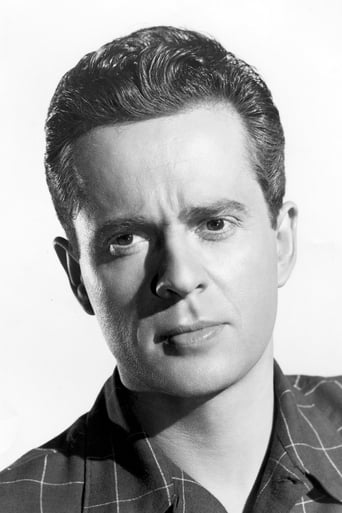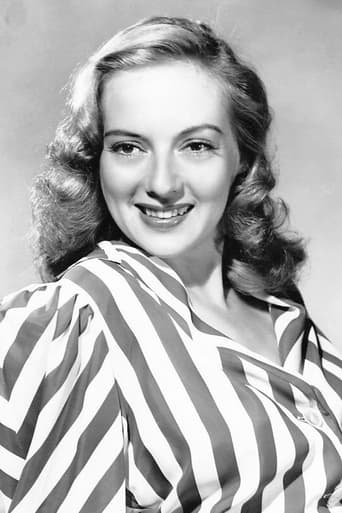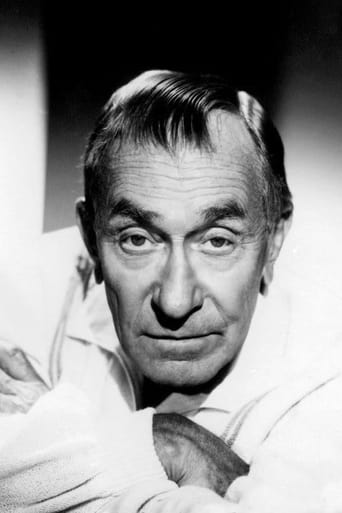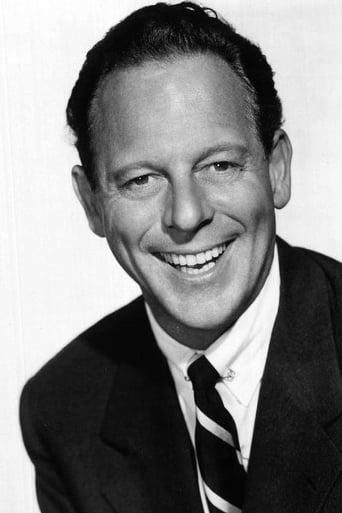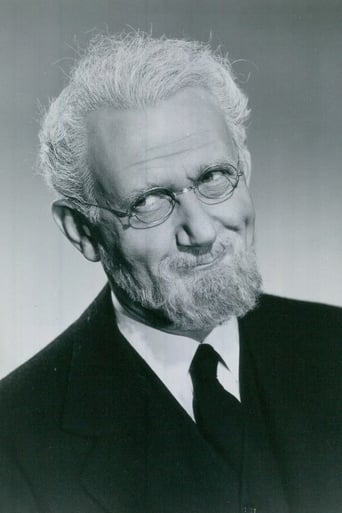UnowPriceless
hyped garbage
KnotStronger
This is a must-see and one of the best documentaries - and films - of this year.
Kien Navarro
Exactly the movie you think it is, but not the movie you want it to be.
Logan
By the time the dramatic fireworks start popping off, each one feels earned.
grantss
Historically inaccurate, but the music is good. Allegedly the story of the life of Al Jolson, but is biographical and accurate only in the Hollywood sense. Far too much poetic license is taken with the plot, to the point that after a while you wonder if anything you saw is true. the biggest example of this is the implication that Jolson was first married, to Julie Benson, around the time he made The Jazz Singer (1927). He did get married, to Ruby Keeler, in 1928, but this was his third marriage! Wouldn't want to ruin the "hero eventually meets his perfect one after putting his career first and much disappointment, dating-wise" plot you figured would work on audiences, would you now, Hollywood? I guess the fact that her name was changed should be a clue that this is a work of fiction...The "happily ever after" ending was also fictional, as they divorced in 1940, six years before the movie was made. On the positive side, some good music and stage performances.On that note, Larry Parks is kind of hit-and-miss as Al Jolson. His stage performances are good, and seem to portray well the larger- than-life, complete entertainer nature of Al Jolson. However, in the off-stage scenes he comes across as overbearing, overly energetic, phony and downright irritating.If you are interested in the correct history of Al Jolson, don't watch this. Watch a History Channel documentary instead, or just read Wikipedia.
robert-259-28954
What is so amazing about this film is how well it still stands up after all these years. When watching it, you can hardly believe it was made in 1946!! But this movie mainly belongs to the superb Larry Parks, who as many have remarked, "Was even better than Al Jolson," in his remarkable recreation. In fact, his performance was one of the best I've seen, clearly as good as Jamie Foxx as Ray Charles, or any of the many others that were to follow. The reason I called this movie a perfect film, was because it embodied all of the qualities a great movie should, from casting, to script, to direction and production values. I remember fondly enjoying this film as a young boy, and after watching on TV in 2013, it still managed to entertain. Kudos to the great William Demarest as Jolson's mentor and manager. But by far the only sad moment in this story was the REAL one, when Parks' burgeoning career was destroyed utterly by our version of The Spanish inquisition, the Joseph McCarthy era of fear and loathing in Los Angeles. May we never live to see such an abomination of what made this country great again.
calvinnme
This movie started the wave of biopics that began after WWII. Larry Parks doesn't look the least bit like Al Jolson. For that matter, the script doesn't look much like Jolson's life either. However, the film is very entertaining with a few ironies for the classic film buff. When Parks is on stage, you really get a taste of Jolson in his prime. Al Jolson actually tutored Parks in how to move and interact with the audience using his own style, and it comes across well, even if it is obvious that you are hearing Jolson's voice during the performances and that this voice does not match Larry Parks' speaking voice at all.Jolson's life story has been sanitized here to keep in line with the values of the post-war motion picture production code, right down to extending the life of Jolson's mother an extra forty years - she died when Al was ten. Also, the movie has Jolson playing the career-absorbed bachelor until he meets his wife Julie Benson (code for Ruby Keeler) when he is in his forties. Yes, Al was career-absorbed, but he still went through two marriages and two divorces before he ever got to Ruby Keeler.Two very interesting points of the film involve the insertion of the fictional character Steve Martin that allegedly got Al into show business and also the choice of director. The first interesting point is that fictional character Steve Martin is played by William Demarest, who actually had a bit part in 1927's "The Jazz Singer". You'll see him sharing a plate of eggs with Al at Coffee Dan's just minutes before Al bursts into song in "Toot Toot Tootsie". Demarest was a bit player over at Warner's during the beginning of his career. He had no real association with Al Jolson that I know of. The second interesting point is the choice of director - Alfred E. Green. Mr. Green was among that group of directors that ground out the early talkies for Warner Bros during the time that Jolson was a star at that studio. However, he never directed any of the eight motion pictures that Al Jolson starred in for Warners. There were four directors that Jolson worked with over at Warner Brothers that were still alive when this film was made, but for some reason none of them got the job.At any rate, the movie is very entertaining and well-paced with great renditions of Jolson's acts and songs. For the unvarnished truth about Jolson's life, try to find a copy of the documentary "The Real Al Jolson Story" made in 1986 and originally telecast by Bravo, back when they really were dedicated to the performing arts and before they became so concerned with Top Chefs and Flipping Out - you know, the same kind of stuff you can find on 50 other channels.
reflex-1
I agree that Larry Parks should have received an Oscar for this performance. It's an amazing job! And, yes, joleson's parents were made to look alittle too sweet, and the dialog between Larry Parks and Evelyn Keyes was somewhat stilted, but every time Jolson sings, all is forgiven. Every time Parks plays Jolson singing, all is forgiven. In the opening scene, in which Scotty Beckett plays young Jolson, I am always stunned at the beauty of that singing voice. Does anyone know whose voice it was? Was it Scotty's? I am disappointed at criticism of this movie on the issue of Al Jolson's performing in black face. It is a historical fact that he did it, and to attempt to write it out of history is not helpful to anyone. The fact that this movie was presented after World War II and was a resounding hit is evidence, I believe, that it is the music and the way it was performed, and not the black face, that people loved. This fine movie preserves a whole era of American show business, and it is powerful enough to still bring tears to the eyes.
